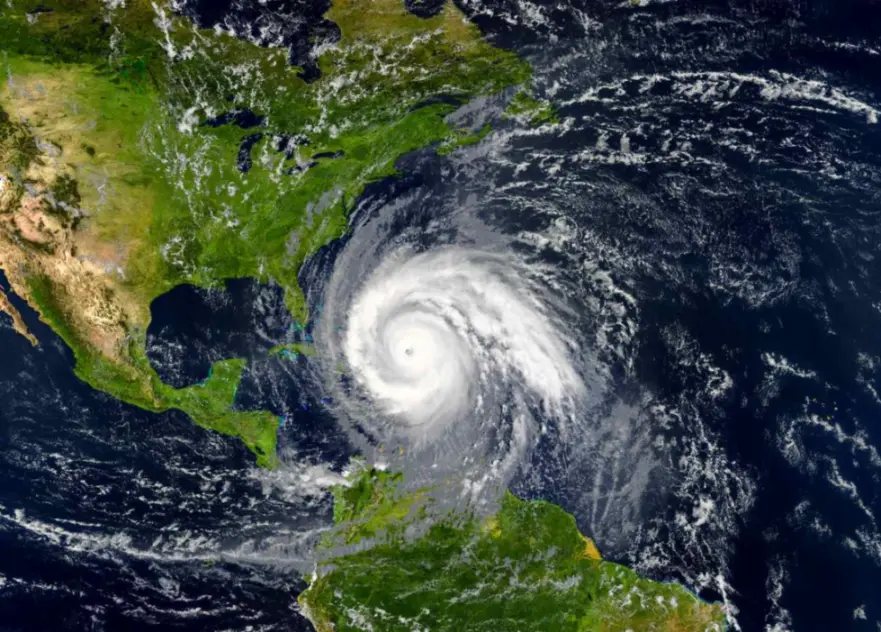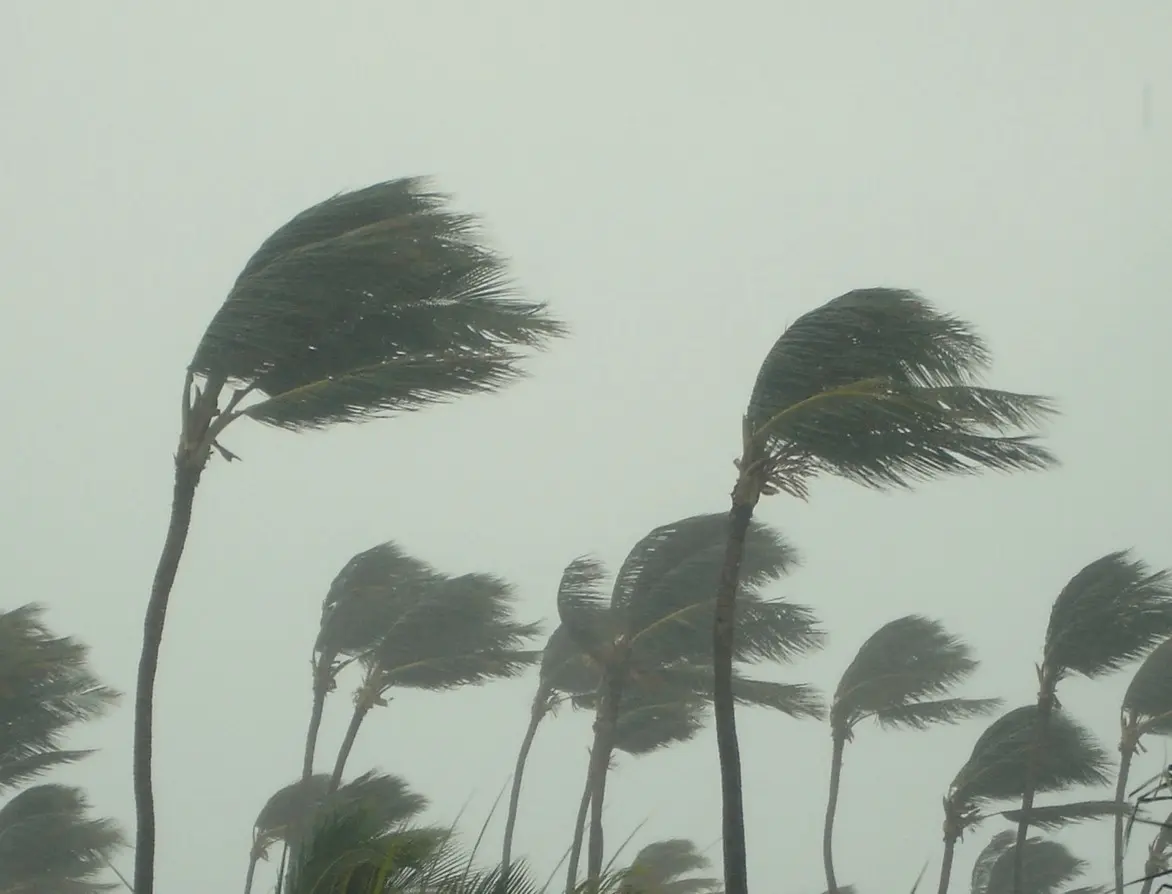Does Jacksonville Get Hurricanes?
Learn the history and present of severe weather in Jacksonville, including what northeastern Floridians can expect this hurricane season.
While Jacksonville hosts gorgeous beaches and lively music festivals, it is also geographically nestled in the heart of Hurricane Alley. Hurricane season runs from June 1st through November 30th. Though Jax is not nearly as susceptible to severe storms as Florida’s Gulf Coast or the Carolinas, several tropical storms have landed through the years.
Here is your ultimate guide to Jacksonville hurricanes, including what you can expect in the coming months and how to best prepare.
How Many Hurricanes Have Hit Jacksonville, Florida?
Jacksonville’s severe weather history spans multiple centuries. However, Florida hurricanes tend to dodge Jacksonville mostly, with Colorado State University reporting that only five major hurricanes have significantly impacted Duval County since 1880. That being said, 27 named tropical storms have brushed or hit Jacksonville since 1871, and on average, the city is affected by tropical cyclones every 2.14 years.
Why Doesn’t Jacksonville Get Many Hurricanes?
Historically speaking, most tropical storms pass by northeast Florida to make landfall in South Carolina. This is due to the Gulf Stream, an ocean current that brings warm water from the Gulf of Mexico up along the eastern coast of North America.
Jacksonville resides in a Goldilocks zone in a divot on the coast of the U.S., where it is, on average, about 75 miles from the Gulf Stream. Because tropical storms form over warm waters, the cold Atlantic Ocean off Jacksonville’s shores acts as a natural barrier that helps to ward off hurricanes.

What Hurricanes Have Hit Jacksonville?
Despite its distance from the Gulf Stream, Jacksonville is no stranger to Florida hurricanes, and several infamous storms have become known in Duval County through the years. Read on as we discuss some of the most notable Jacksonville tropical storms on record.
Hurricane Dora
In 1964, northeast Florida was struck by its first hurricane in 66 years. Hurricane Dora made a rare direct impact on Duval County, a weather phenomenon that has not happened since and resulted in five deaths and $200 million in damage. In the following decades, Jacksonville upgraded building standards, solidified evacuation plans, and improved forecasting capabilities, making it unlikely that a similar storm would have the same effect today.
Hurricane Floyd
September 1999 led Jacksonville residents to breathe a sigh of relief when massive Hurricane Floyd passed about 120 miles farther east of Florida’s shores than predicted. The menacing storm caused what was, at the time, the largest evacuation in U.S. history, resulting in a massive eastbound traffic jam along I-10. In its aftermath, the city dealt with three years of damage repairs to rebuild the Jacksonville Beach pier.
Hurricane Matthew
Jaxons braced for the worst in October 2016 when Hurricane Matthew began to advance toward eastern Florida after devastating Haiti. Thankfully, the weather event was less damaging than anticipated, though widespread power outages, significant flooding, and fallen trees still befell Jacksonville Beach and Saint Augustine. At its worst, waters rose seven feet deep along the coast, and a portion of the Jacksonville Beach pier washed away.
Hurricane Irma
Less than one year after Matthew, Hurricane Irma caused the worst flooding in Jacksonville’s history. The record-breaking downtown floodwaters were the highest ever recorded in Duval County, and a flash flood emergency was issued to homes along the Saint Johns River, where many people had to be rescued from the rising waters. Debris took months to clear, and many businesses remained shuttered for the rest of the year.
Atlantic Hurricane Forecast for 2024
The National Oceanic and Atmospheric Administration predicts an above-normal hurricane season for 2024, with 17 to 25 named tropical storms expected to make their way across the Atlantic Ocean, of which four to seven will be considered major hurricanes.
As it is a La Niña year, the trend of increasingly intense hurricane seasons has been heightened. There is a 62% chance of a Category 3, 4, or 5 hurricane making landfall in the U.S., which is nearly 20% more likely than last year and could mean one of the most active Atlantic hurricane seasons in history.
Hurricane Preparedness Checklist
It is vital to be prepared for whatever Jacksonville weather may bring. Below is a checklist to help you and your family prepare for whatever this hurricane season has in store.
- Upkeep your home. Before the season begins, thoroughly inspect your home to ensure it is up to code. Install hurricane-rated doors, windows, and shutters. Trim landscaping and trees, and check your roof for loose shingles. Secure items in your yard if a storm is on the way.
- Have an evacuation plan. Designate a meeting place for your family if you are separated. You should also know your roads and alternate routes ahead of time and communicate your plan to someone who isn’t in the path of the storm. If you own pets, have a plan for them.
- Safeguard your valuables. Irreplaceable documentation and heirlooms should be kept somewhere secure and waterproof, like in a safe or a waterproof bag.
- Pack your disaster kit. You may have little time, so have a go bag ready. Remember to pack medical supplies, a three-day water supply and non-perishable food, documentation for family members and pets, and tools like flashlights and matches.
- Floodproof your home. Shut off your main circuit breaker to eliminate the possibility of electrocution, and elevate your furnace, water heater, and electric panel if necessary. If you know your home is prone to flooding, install a water alarm and waterproof your basement.
- Consider purchasing flood insurance. Even a little water can do a lot of damage. Review your insurance policies with your agent to decide what to cover. Additionally, you should have videos and pictures of all your possessions for insurance purposes.
Protect Your Belongings From Jacksonville Severe Weather With Atlantic Self Storage
Your safety and that of your family are of the utmost importance in an emergency. That being said, having a plan for safeguarding your belongings during a hurricane is critical, especially if your home is near the coast or in a flood-prone area.
Atlantic Self Storage has climate-controlled storage units in Jacksonville, giving you a convenient, secure spot to keep your belongings. To have peace of mind knowing your personal storage possessions, business storage inventory, and even vehicles are in an industry-grade indoor facility, Atlantic Self Storage is here for you.
Contact us today for your ideal Jacksonville self storage solution, and find us at a location near you!